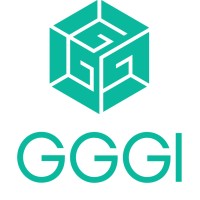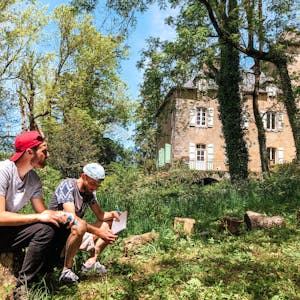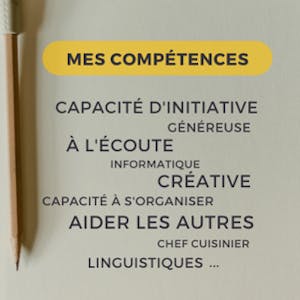INTRODUCTION TO GGGI
The Global Green Growth Institute (GGGI) is a treaty-based international, inter-governmental organization dedicated to supporting and promoting strong, inclusive and sustainable economic growth in developing countries and emerging economies.
PROJECT BACKGROUND
In Kalimantan, Indonesia, the Global Green Growth Institute (GGGI) is implementing the Nature-Based Solutions for Climate-Smart Livelihoods in Mangrove Landscapes (NASCLIM) project. Funded by Global Affairs Canada, this five-year initiative supports the rehabilitation of degraded mangroves and the protection of intact forests in North Kalimantan and East Kalimantan. It focuses on restoring natural tidal flows, promoting sustainable aquaculture, and strengthening the resilience of coastal communities—particularly marginalized groups, including women. The project also aims to enhance policymaking capacity for effective management of mangroves.
NASCLIM aims to enhance the resilience of coastal communities—particularly marginalized groups, including women—while improving access to mangrove ecosystem benefits. It contributes directly to Indonesia’s climate adaptation and mitigation goals and is designed as a national model for replication elsewhere.
OBJECTIVES OF THE ASSIGNMENT
The main purpose of this assignment is to support GGGI and the provincial governments of North and East Kalimantan in strengthening the enabling environment for sustainable mangrove management by developing a comprehensive, evidence-based policy analysis framework that addresses jurisdictional and tenurial challenges, aligns with spatial and development planning processes, and promotes integrated, inclusive ecosystem governance across sectors and levels of government.
The Expert will:
- Conduct a policy and institutional gap analysis to identify overlapping mandates, inconsistencies between spatial and development planning regimes, and tenurial barriers affecting mangrove governance across sectors and administrative levels in North and East Kalimantan.
- Facilitate multi-stakeholder consultations and policy dialogues involving provincial agencies, forest management units, village governments, and local communities to validate findings, clarify institutional roles, and gather input for integrated mangrove management strategies.
- Develop a policy analysis framework and recommendations that aligns mangrove protection and restoration efforts with village development plans, spatial plans, and provincial forest management priorities, including recommendations for resolving tenure conflicts and strengthening coordination mechanisms.
The Team:
For this task, the consultant will work with provincial and district governments in North and East Kalimantan to obtain endorsement for the entire assessment process and its outputs, provide technical input on the assessment design, and secure permission to access relevant data and information.
Close coordination with government and non-government stakeholders is required. All external communication must be approved by GGGI.
SCOPE OF WORK
The Consultant's specific tasks are the following:
1. Preparation and planning:
- Develop comprehensive work plans, activity schedules, and implementation milestones.
- Identify key stakeholders and engagement strategies.
- Conduct a preliminary review of relevant secondary data and literature.
2. Policy inventory and analysis:
- Compile and catalogue existing policy documents, regulations, and strategic plans.
- Analyzes alignment, gaps, and overlaps within the mangrove policy framework.
- Develop a policy matrix and a policy flow infographic for clarity and decision support, including an assessment of policy enforcement effectiveness.
3. Institutional and authority mapping:
- Identify key institutions involved in mangrove management at national, provincial, and local levels.
- Analyze institutional roles, legal mandates, and inter-agency coordination structures, to include inter-sectoral linkages (i.e. between environment, fisheries, agriculture, and spatial planning sectors) to ensure a holistic, cross-sectoral approach.
4. Identification of challenges, best practices, and review of the previous studies:
- Conduct field studies and interviews with key actors at national and local levels through direct engagement with stakeholders in North and East Kalimantan.
- Compile best practices and summarize findings and lessons learned from previous studies and initiatives, to include an explicit ecological assessment component (i.e. mangrove coverage and attributive species biodiversity).
5. Conflict analysis - mangrove conversion for aquaculture:
- Gather spatial and qualitative data on mangrove conversion dynamics.
- Conduct a conflict analysis and assess socio-economic and gender-related impacts, with particular focus on aquaculture, development activities, and coastal pollution.
- Pay special attention to impacts on women and marginalized groups.
6. Stakeholder engagement and consultations:
- Facilitate in-depth interviews and focus group discussions.
- Document stakeholder views, aspirations, and proposed actions, stakeholders (explicitly include women, vulnerable groups, and representatives from all relevant government sectors, such as environment, fisheries, spatial planning) in interviews and focus group discussions.
7. Paralegal training and legal empowerment:
- Conduct a Training Needs Assessment (TNA) and develop tailored training modules.
- Deliver paralegal training to community members and local champions, ensuring women’s participation
- Complement training with capacity building on sustainable practices (e.g., mangrove restoration, ecological monitoring) to strengthen stewardship.
- Evaluate training impact through pre- and post-tests and monitor follow-up actions.
8. Formulation of recommendations and policy brief:
- Synthesize research findings and consultations into clear recommendations, to ensure a balanced immediate conflict resolution with long-term sustainability goals and emphasize community-led management where feasible.
- Draft policy briefs for targeted policy and institutional audiences.
9. Drafting of policy instruments:
- Prepare draft regulations, academic manuscripts, and policy documents.
- Facilitate public consultations and incorporate feedback into revised drafts.
10. Final documentation and reporting:
- Compile and finalize an integrated report covering all study components.
- Prepare presentation materials for stakeholder dialogue and validation.
- Document meeting proceedings and stakeholder interactions through detailed minutes, including drafts of priority regulations and policies to address context-specific challenges in North and East Kalimantan.







